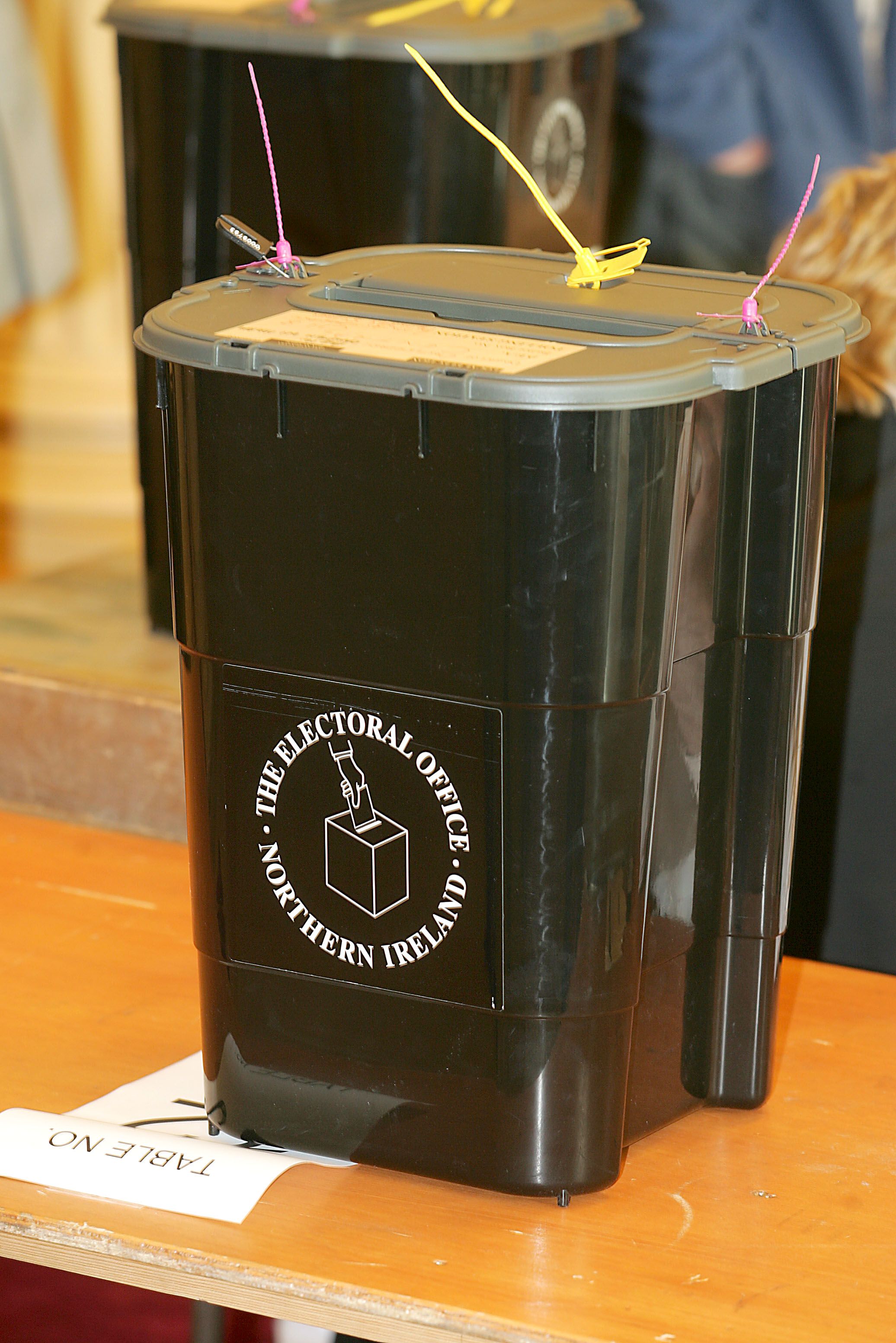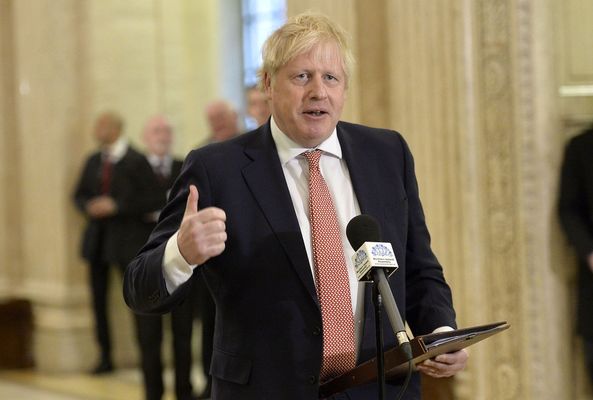FOR all of the increased momentum behind Irish unity it’s remarkable to think we still don't know the criteria required to trigger a border poll. Will it be based on evidence from opinion polls? Census data? Election results? We don`t know because the British government won't to tell us. Mary Lou, Colum Eastwood, Leo Varadkar and Naomi Long have all asked for clarification but to no avail. Thanks to Féile we put the question front and centre this Friday at 1pm in St. Mary’s University College as we debate, 'Time To Clarify The Precise Criteria for A Border Poll?'
The much-anticipated Census results did not have a specific question on the constitutional issue so are of little use in assessing how many people desire a united Ireland. It will tell us how many Catholics and Protestants and none of the above there are. But as we all know being a Catholic does not make you pro-Irish unity or a Protestant pro-UK.
Election results are bound to have a significant bearing on when a referendum is called. But which election? Council elections, Assembly elections or Westminster elections? Do we factor them all equally or are any of these elections more or less important than the other when trying to work out people's position on the constitutional question? Unionism has lost its majority in every type of election and it's never coming back. If neither the pro-Union nor Pro-United side have a clear lead should this be enough to trigger a border poll? Conscious of the declining unionist vote Ex-DUP spad Lee Reynolds now highlights the distinction between what he terms political unionism and referendum unionism, to suggest there is a significant demographic of unionists who don't vote in elections but who will come out in force to vote for the Union in a referendum. However Kevin Meagher, author of 'A United Ireland', who is speaking in our Féile debate, dismisses the claim of Lee Reynolds as wishful thinking.
Nicola Sturgeon has indicated that if the British government continues to deny Scotland an Independence referendum the SNP will use the next Westminster election as a de facto referendum on Independence. If we use this measure, the last General Election in the North elected nine pro-Unity to eight pro-Union MPs. Should this be factored into the equation when deciding if the conditions for a Unity referendum has been met?
Looking forward to joining @KevinPMeagher and others for the panel discussion "Time to clarify the precise criteria for a border poll?"
— Liz Kimmins (@LizK1988) August 9, 2022
as part of @FeileBelfast 2022 ⬇️
📍St Mary's University College
📆 Friday 12 Aug
🕐 1pm
#Feile2022https://t.co/2Jd4m2e0d3
In the most recent Assembly election a nationalist party topped the poll for the first time and just 5,123 votes separated Pro-Union and Pro-Unity parties. Unionists won 363,891 votes (42.1%) and United Irelanders 358,768 votes (41%). A significant chunk of the electorate – 140,550 (16.2%) backed independents and parties like Alliance and Greens, who eschew a binary position on the UK/UI question. The take-away is that pro-UK won more votes but that there is little between both sides. Where things become interesting is trying to work out how the constitutionally undecided will vote come a referendum? The 16.2 % will not only be key to deciding the outcome of a border poll but also triggering it.
What happened to the second preferences of the 16.2 percent in that election is worth investigating. A state-of-the-parties poll two days before the May 5th election commissioned by the Irish News in conjunction with Liverpool University makes for interesting reading. They found Alliance’s second preference votes breaking more than 2:1 for parties committed to Irish unity. A clear 54.2% of Alliance second preferences went to SDLP (33.1%), Sinn Fein (15.1%), Aontú split between the UUP (15.1%), the DUP (6.2%) and the TUV (1.3%). It is a similar story with the Green second preferences massively favouring Unity parties over Unionist parties. The media narrative suggests that people voting for 'middle ground parties' are less bothered about constitutional politics. A more compelling narrative is that increasing numbers of Alliance and Green voters seem ready to vote for Irish Unity.
When it comes to evidence from opinion polling as a guide to assessing whether the criteria for a reunification referendum has been met, as you would expect the validity of various polls are hotly contested. When polling is done face to face and in person most polls indicate a healthy lead for remaining in the UK. Whereas online polling reveals a much closer contest. This has led some to hypothesise about the concept of 'Shy Nationalist Voter' reluctant to admit in face-to-face interviews their support for a United Ireland but happy to do so via online polling.
Since Brexit, pro-UK supporters led by Jeffrey Donaldson have constantly referenced polling conducted by Liverpool University in media interviews arguing against a border poll, insisting a clear majority in the North wished to stay in the UK. Yet the very latest Liverpool University/Irish News poll conducted in late July 2022 found a different picture. When people were asked to respond to the prompt: 'I would vote for a united Ireland tomorrow, ' 43.2% of voters agreed and 39.5% disagreed. A lead of 3.7% for Irish Unity.
Galling to hear the sanctimony of Unionist politicians this week talking about the nature of the NI conflict. They fuelled it with their sectarian misrule and actively participated in it. All violence is wrong but state actors have particular responsibilities not to engage in it. https://t.co/TSCgyeVmLI
— Kevin Meagher (@KevinPMeagher) August 7, 2022
When the polling was framed in a slightly different way: 'I would vote for a united Ireland in 15-20 years’ time', 46.2% agreed, while just 32.75 disagreed (14.7 % are not sure). A lead for Irish unity by a decisive margin of 13.5%
This latest poll is quite the contrast to previous Liverpool University polls all of which looked favourable to unionism. Ironically Brandon Lewis was fond of citing Liverpool university surveys when he was Secretary of State for the North in order to reject demands for a border poll. Now British government politicians are conspicuous by their silence when confronted with the latest evidence. All of a sudden unionist commentators who never ever had a problem before with Liverpool University's polling methodology now criticise the polling methodology and sampling. One can only smile wryly.
Just over 100 years ago the British invited Unionist leaders into a room, gave them a map and a pencil and invited them to draw a line in a map cutting Ireland in two in order to create a partitioned entity with a guaranteed unionist majority into perpetuity. Today that unionist majority is gone, and we are in the end game. Every inch of the 310 mile border on the northern side is now represented by a United Ireland MP. Of the six partitioned counties only Antrim and Down have more pro-union support but even here neither county has a majority for the union when we factor in undecideds. In contrast, support for pro-Unity parties across the North continues to grow. Nationalists not only outnumber Unionists but are an absolute majority in Armagh 54%, Fermanagh 53%, Derry 61% and Tyrone 60%. At every election the Union gets weaker and the pro-Unity case stronger.
In terms of planning and preparation there is a huge amount of work to be done to make sure a border poll is not only won but won well. However there is now a sound case that the conditions already exist to trigger a border poll. When you think about it though – to demand as the British PM does that Nationalists must be in a majority to have a referendum but Unionists can maintain the status quo without a majority is fast becoming an issue of equality.
Join us this Friday as we explore the border poll question further and debate what we can do to bring more transparency in relation to the exact conditions required to achieve a unity referendum.
Time To Clarify The Precise Criteria For A Border Poll?
Speakers: Kevin Meagher is a regular contributor to irishborderpoll.com and author of several books including 'A United Ireland: Why Unification Is Inevitable and How It Will Come About'. Liz Kimmins is Sinn Fein MLA for Newry and Armagh.






